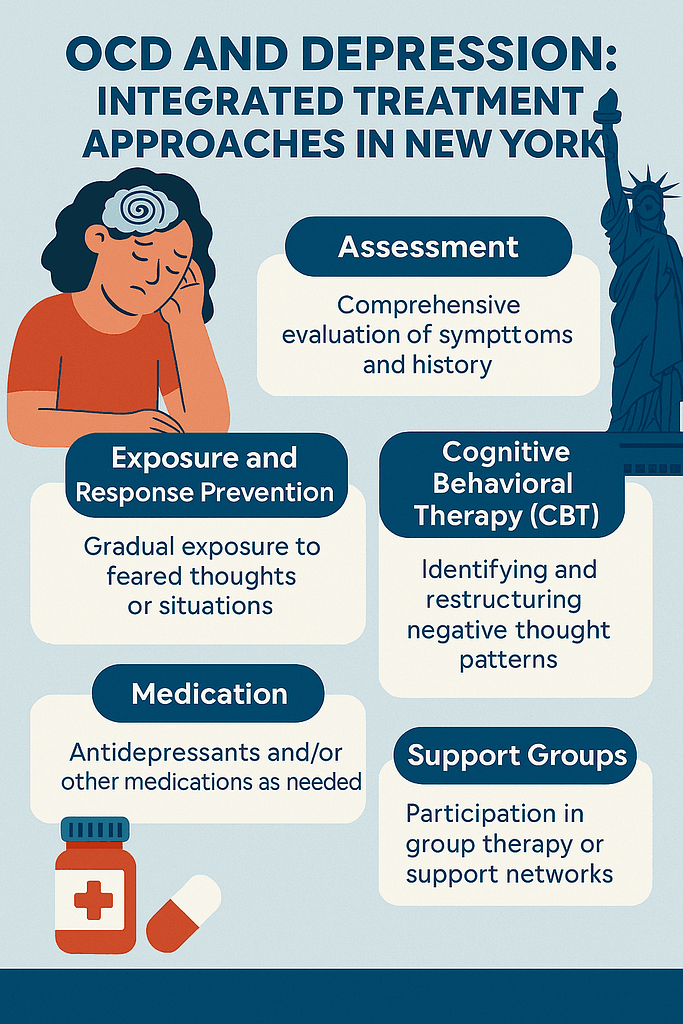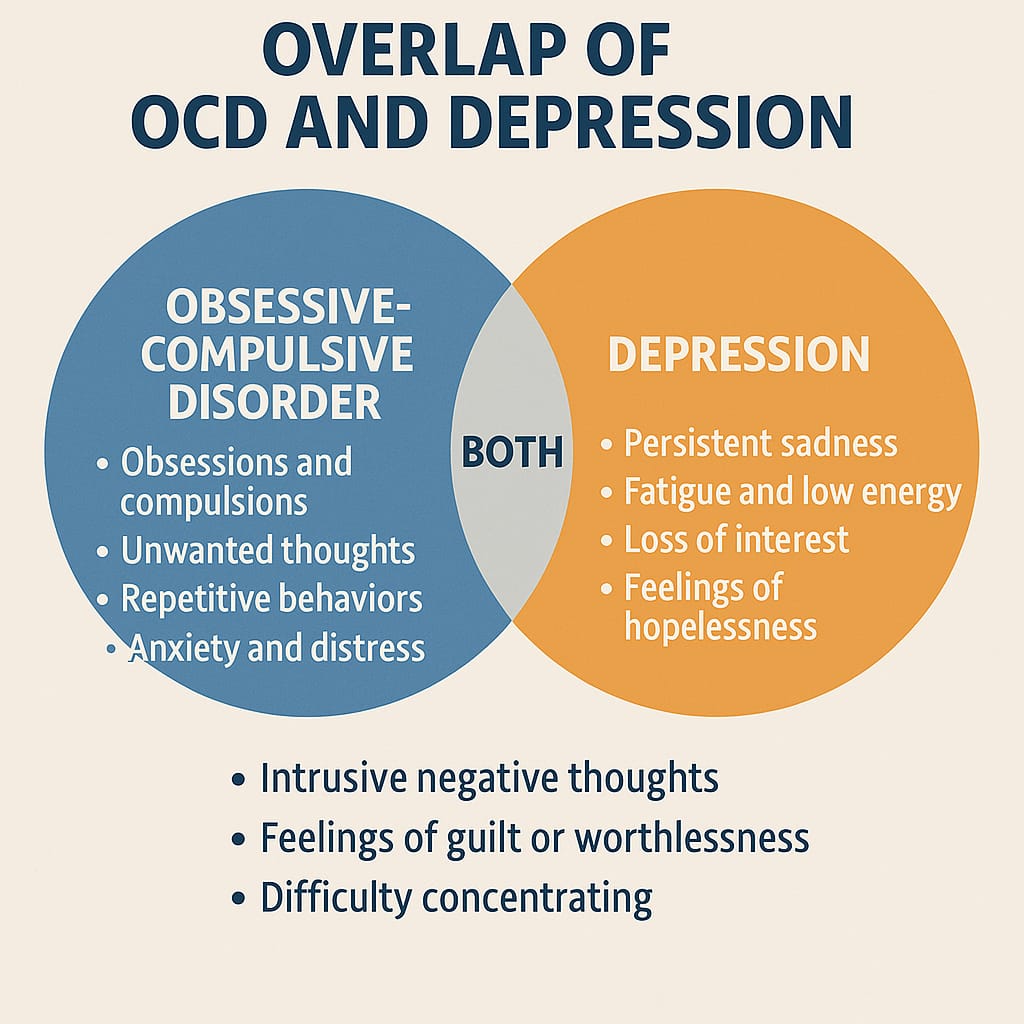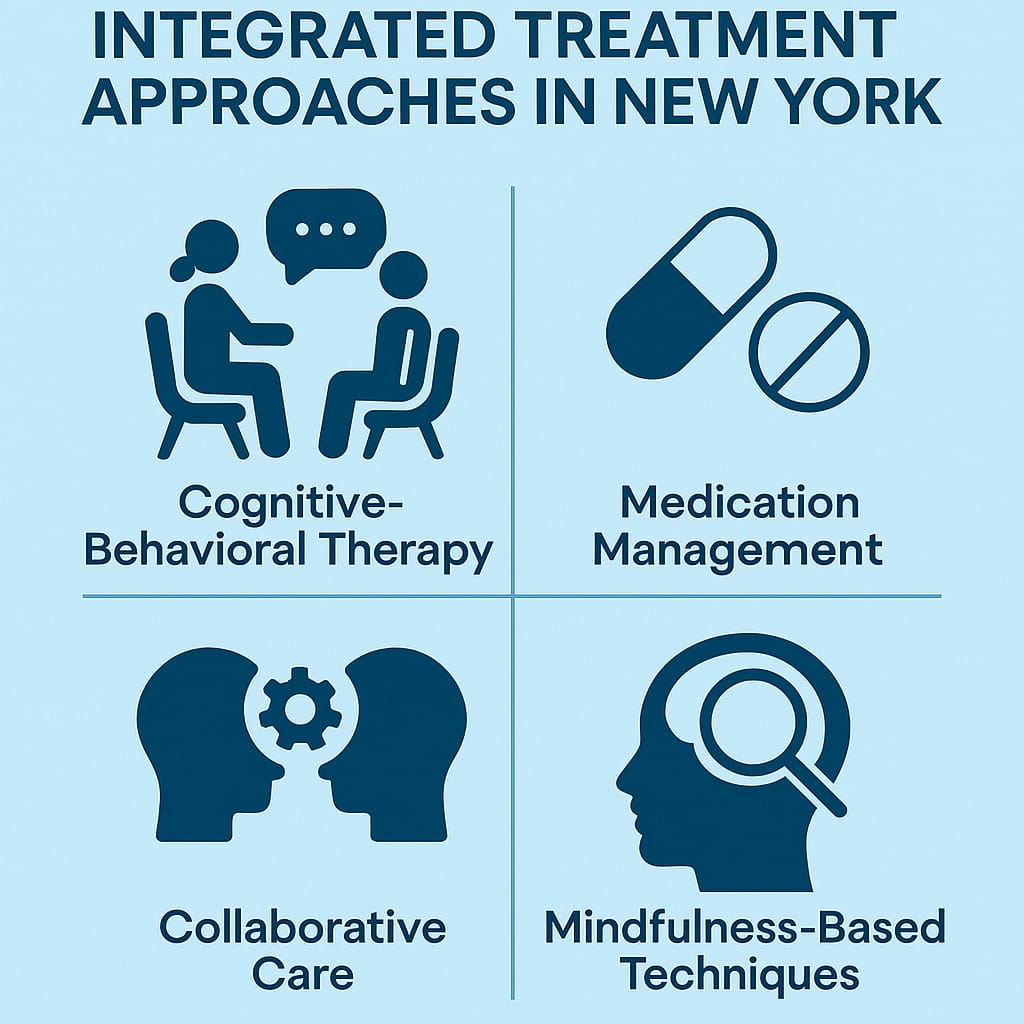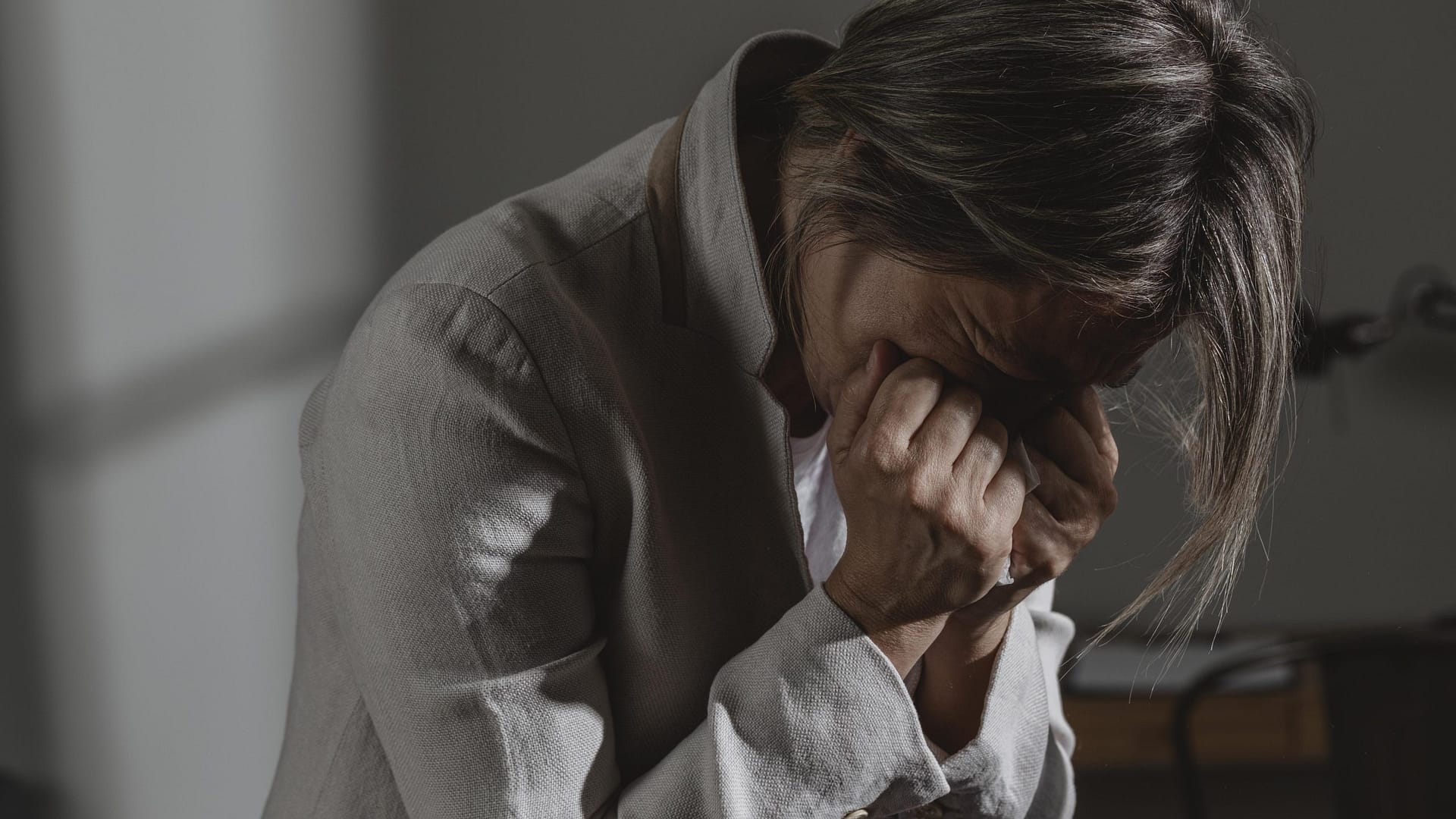
INTRODUCTION
Living with Obsessive-Compulsive Disorder (OCD) and depression can be difficult, especially in a fast-paced city like New York. When OCD and depression are present, it can become a series of revelatory instances that include as many intrusive thoughts, compulsive behaviors, or deep emotional pain.
Mental health clinicians in New York have created ways to combine cognitive behavioral therapy (CBT), medications, and provide special care to help people to gain relief to be able to recover.
In this blog, we will discuss how therapists in NYC are approaching the unique dilemmas of OCD and depression through innovative and evidence-based approaches, supporting them towards sustainable recovery and improving their quality of life.
Understanding OCD and Depression: A Dual Diagnosis
What Is OCD?
Obsessive-Compulsive Disorder (OCD) is a mental health disorder characterized by ongoing intrusive thoughts or obsessions, and externally manifested repetitive behaviors or mental rituals called compulsions.
These obsessions usually cause a significant level of distress or anxiety that leads the person to engage in compulsive behavior to relieve the anxiety.
For example, someone who is obsessed with having clean hands may wash their hands excessively in a way that reduces their distress about germs. OCD can manifest in a variety of ways —checking, hoarding, symmetry, etc., — but its underpinning is in anxiety, fear, and a strong desire for control or certainty.
What Is Depression?
Depression, or Major Depressive Disorder (MDD), is a severe mental health challenge that disrupts people’s feelings, thoughts, and functioning. Depression presents with prolonged sad or empty feelings, a marked loss of interest in former pleasurable activities, and physical symptoms like appetite change, sleep change, and chronic fatigue.
People living with depression can also experience worthlessness and hopelessness, which when severe, can lead to suicidal thoughts.
When depression co-occurs with Obsessive-Compulsive Disorder (OCD), it adds to the emotional burden, complicating people’s experience with managing their compulsions and intrusive thoughts.
Overlap of OCD and Depression

Obsessive-Compulsive Disorder (OCD) and depression are separate mental health conditions, however, they frequently occur together and represent a significant detriment to an individual. Individual’s repeated anxiety, recurrent intrusive thoughts, and compulsive behaviors related to OCD can lead to emotional exhaustion, an altered routine, and social isolation that contributes to symptomatic depression.
While OCD may develop into depression, if both conditions are present, the depressed individual’s motivation and cognitive flexibility to overcome obsessions is reduced creating challenges in resisting compulsions and irrational fears.
Research suggests, between 60 – 80% of individuals with OCD will experience at least one major depressive episode in their lifetime. The comorbid nature of OCD and depression demonstrates a need for integrated treatment and place-based approaches that simultaneously address OCD and depressive disorder, instead of being treated separately.
Challenges of Treating OCD and Depression Together
Treating OCD and depression simultaneously can be difficult for many reasons, including the shared symptoms of both disorders, therapeutic interference, and complications related to medication.
- Some of the symptoms that overlap include concentration difficulties, sleep difficulties, and irritability, which may not only make it more difficult to identify the condition—and may be especially true in primary care where limited time and mental health expertise may complicate the evaluation of these symptoms—but can adversely impact the management of either condition individually.
- These overlaps take place at a symptom level like concentration, at a treatment level in terms of how depression can interfere with a person participating in an OCD-specific treatment, for example, exposure and response prevention (ERP), as low motivation, sense of hopelessness, and fatigue associated with depression make participation inconsistent.
- Similarly, the compulsions associated with OCD can get in the way of the concentration needed to complete treatment for depression.
- The considerations of medication add another level of complexity since the antidepressant medications approved for use with depression may not be adequate for OCD. For example, SSRIs are used for depressed patients as well as for OCD patients,
While depression can often be treated with a lower dose, OCD often requires a higher dose of the same SSRIs, and undertreatment might lead to a less than optimal treatment outcome or even the worsening of symptoms.
Integrated Treatment Approaches in New York

1. Cognitive Behavioral Therapy and ERP
Cognitive Behavioral Therapy (CBT) is accepted as the best treatment available for both Obsessive Compulsive Disorder (OCD) and depressive disorders. ERP is commonly used for OCD.
- In ERP, an individual is exposed to their fears in a graduated way while also prohibiting the compulsive component, to help tolerate the anxiety associated with their fears.
- CBT for depression seeks to challenge negative thoughts and beliefs, while utilizing the cognitive work that is characterized by the CBT model.
In New York City, a number of therapists employ some elements of CBT and ERP, addressing compulsions, anxiety and negative thinking for depression, simultaneously.
2. Mindfulness Based Cognitive Therapy
Mindfulness-Based Cognitive Therapy (MBCT) combines mindfulness practices (e.g. meditation, deep breathing) with cognitive therapy techniques.
- MBCT teaches clients how to notice their thoughts non-judgmentally, allowing them to detach from obsessive thought patterns, including the ruminative nature of depression.
- This empowering combination of mindfulness and observation of depressive cognition can help break the cycle of depression, and has become readily available in New York City at therapy centers and hospitals, and group presentations of MBCT have been made available to support social support and peer learning.
- Combined with mindfulness as a part of one’s practice, MBCT is effective in preventing relapses into depression, and helps practice developing a calm, non-reactive way of viewing an obsession, a life skill that helps a person manage thought and emotional responses in day to day living with OCD.
3. Acceptance and Commitment Therapy (ACT)
Acceptance and Commitment Therapy (ACT) offers assistance to individuals in accepting their thoughts and feelings without struggle, while guiding clients toward actions that are aligned with their personal values.
- In New York, therapists often find ACT useful for addressing the experiential avoidance elements of OCD and depression.
- ACT does not teach clients to deal with the “irritating” thoughts or emotions, but instead allows clients to exert control over actions, decisions, and commitment to living a valued life.
4. Group Therapy and Peer Support
Group therapy can be a supportive way for people with OCD and Depression to hear and share experiences that help them feel understood.
- In New York, there are several clinics as well as non-profit organizations that offer a variety of group sessions specifically for these conditions.
- In group sessions, participants also learn that their symptoms are normal and feel reassured that they are not isolated in their struggles.
- They also have an opportunity to learn new coping skills from both peers and therapists.
Group sessions also provide support and accountability, and if it is a good fit, they allow individuals to build social connections which can be valuable for minimizing the isolation that is often associated with depression.
5. Medication Management
Selective Serotonin Reuptake Inhibitors (SSRIs) are the most common and accepted medication for both OCD and depression, but improved treatment usually requires more than SSRIs as studies reported severe OCD often required higher doses of SSRIs or longer use of medications, to see beneficial effects.
- Common SSRIs used for OCD are fluoxetine (Prozac), fluvoxamine (Luvox) , sertraline (Zoloft), paroxetine (Paxil).
- Psychiatrists in New York, will frequently check on their patients and often cooperate with the therapists where they work to alter medication based on the therapeutic progress.
- If their individual does not sufficiently engage or benefit with the SSRIs, treatment will also include the use of antipsychotics or other antidepressants to better address the individual’s symptoms.
Final Thought
Treating OCD and depression together takes integrated treatment and personalized treatment, especially in the diversified fast-paced environment of New York City.
- OCD and depression can be treated with a variety of evidence-based therapy options, such as CBT, ERP, MBCT, ACT, group support, and properly dosed medications that give clients relief and control over their autonomy.
- Specialized clinics exist in NYC with trained professionals who deliver direct intervention for a dual diagnosis.
If you are struggling with OCD and depression, don’t hesitate to inquire about OCD and Depression Therapy in NYC, help is available, and recovery is possible through the proper treatment options and support strategies.
Reference
- Depression. (2025c, June 2). Cleveland Clinic. https://my.clevelandclinic.org/health/diseases/9290-depression
- Motivala, S. J., Arellano, M., Greco, R., Aitken, D., Hutchenson, N., Tadayonnejad, R., & Feusner, J. D. (2017). Relationships between obsessive-compulsive disorder, depression and functioning before and after exposure and response prevention therapy. International Journal of Psychiatry in Clinical Practice, 22(1), 40. https://doi.org/10.1080/13651501.2017.1351991
- Wikipedia contributors. Obsessive–compulsive disorder. Wikipedia. https://en.wikipedia.org/wiki/Obsessive%E2%80%93compulsive_disorder
- Obsessive-compulsive disorder (OCD) – Symptoms and causes. (n.d.-b). Mayo Clinic. https://www.mayoclinic.org/diseases-conditions/obsessive-compulsive-disorder/symptoms-causes/syc-20354432
- Spencer, S. D., Stiede, J. T., Wiese, A. D., Goodman, W. K., Guzick, A. G., & Storch, E. A. (2022). Cognitive-Behavioral Therapy for Obsessive-Compulsive Disorder. The Psychiatric Clinics of North America, 46(1), 167. https://doi.org/10.1016/j.psc.2022.10.004
- Zhang, T., Lu, L., Didonna, F., Wang, Z., Zhang, H., & Fan, Q. (2021). Mindfulness-Based Cognitive Therapy for Unmedicated Obsessive-Compulsive Disorder: A Randomized Controlled Trial With 6-Month Follow-Up. Frontiers in Psychiatry, 12, 661807. https://doi.org/10.3389/fpsyt.2021.661807
- Vakili, Y., & Gharraee, B. (2014). The Effectiveness of Acceptance and Commitment Therapy in Treating a Case of Obsessive Compulsive Disorder. Iranian Journal of Psychiatry, 9(2), 115. https://pmc.ncbi.nlm.nih.gov/articles/PMC4300464/
- Pittenger, C., & Bloch, M. H. (2014). Pharmacological treatment of obsessive-compulsive disorder. The Psychiatric Clinics of North America, 37(3), 375. https://doi.org/10.1016/j.psc.2014.05.006






